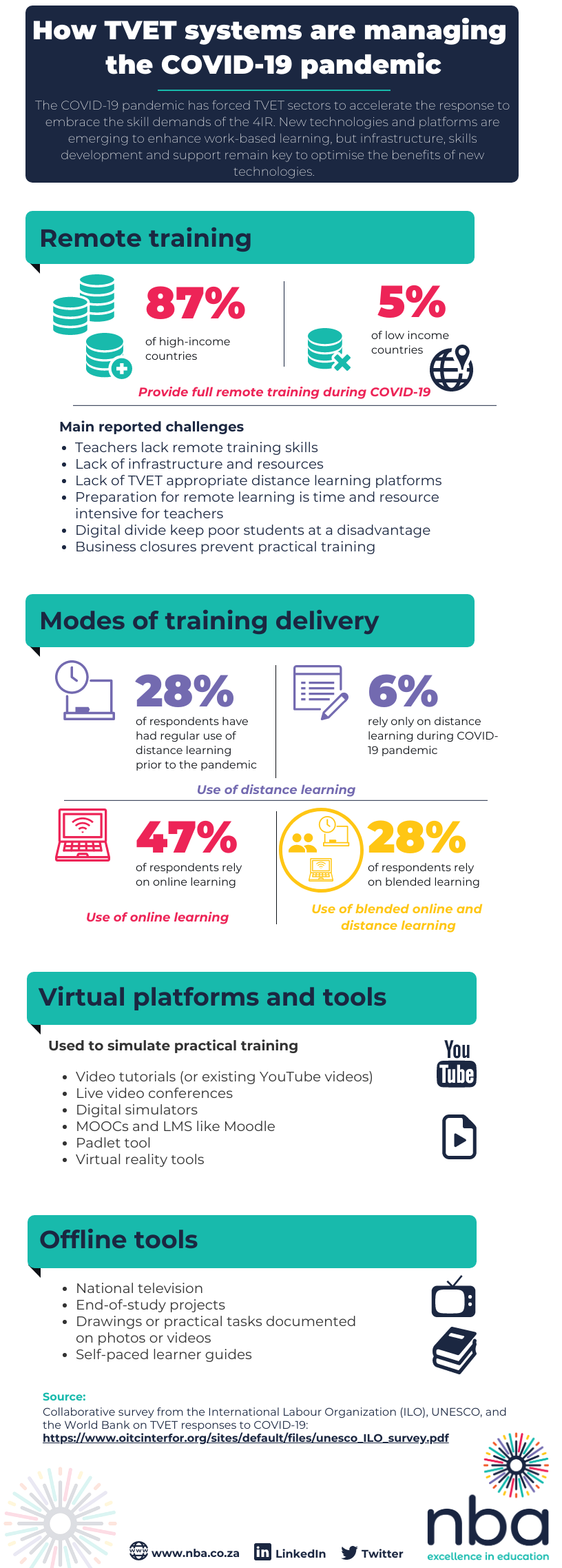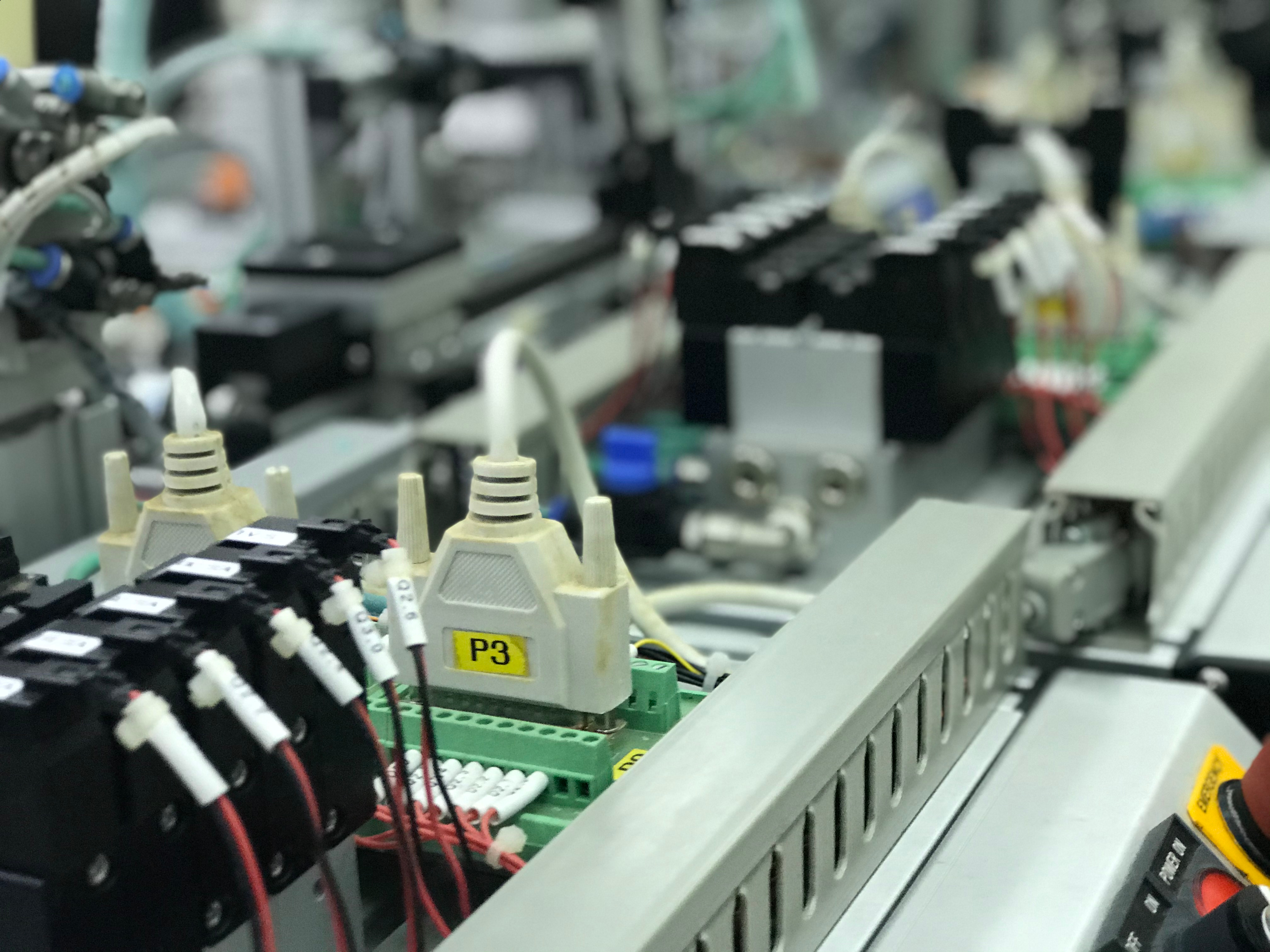Many TVET systems, particularly in lower income countries with lesser infrastructure struggled to adapt to the shift to remote learning brought on by COVID-19. In fact, many still remain closed. A range of existing digital education technologies came to light during the pandemic to potentially mediate some of the challenges TVET systems face, some of which include:
- Augmented reality (AR) tools for the classroom. EBSCO post shared ten AR tools ranging from creating 3D models to creating holograms: https://www.ebsco.com/blog/article/top-10-augmented-reality-tools-for-the-classroom
- Social curation websites such as edshelf. This platform hosts educational technology tools for all ages and for a variety of purposes: https://edshelf.com/
- Supporting TVET teachers. Organisations such as the European Training Foundation uploaded videos on YouTube to support vocational teachers with the transition to online/distance teaching: https://www.youtube.com/watch?v=4YWTQEH-zzY
- Using 3D gaming technology in virtual TVET:
https://labtech-academy.com/index.php/about/about-virtual-tvet
- Introducing Smart classrooms for TVET: https://www.smartclassroom.nl/tvet/
- Optimising ICT in TVET pedagogies:
- Tech-based public-private collaborations. In Spain, partnerships between TVET institutions, ICT and telecom companies resulted in providing students with devices and data to enable remote learning: https://www.lamoncloa.gob.es/lang/en/gobierno/news/Paginas/2020/20200330mobile-studies.aspx
- Platforms to share digital education materials relevant to TVET. In Croatia, such a platform enabled different countries, including Ireland, France, Belgium, Spain, Croatia and Romania to share materials: http://nastava.asoo.hr

The existence of these platforms and technologies does not mean that staff and students have the skills or resources to optimally engage with them. A regional TVET survey for the European Union show that the majority of respondents call for support to develop simulation environments/virtual reality for TVET learning.[1]
The COVID-19 pandemic caught education sectors unaware and unprepared, yet, it might just be the nudge that was needed to fast-track developments to meet the demands of the Fourth Industrial Revolution (4IR). The World Economic Forum estimates that, by 2022, 75 million current job roles will be displaced and 133 million new job roles may emerge by the shift in division of labour between humans, machines, and algorithms. In many cases, it is the composition of skills required to perform a job that will change, and not necessarily deeming skills redundant. TVET systems could be well placed to develop these skills and thereby mitigate the impacts of the COVID-19 pandemic. For that to happen, TVET systems need to step up to what the World Bank calls “build back better” beyond COVID-19. This implies accelerated and demand-orientated growth coupled with stronger partnerships with the private sector. It further requires TVET systems to align better with lifelong learning principles, re-evaluating TVET design and implementation in ways that build on the innovations coming from COVID-19, building more robust and resilient training systems, and ensuring digital infrastructure and skills are embedded in institutions.
[1] https://ec.europa.eu/social/vocational-skills-week/fight-against-COVID-19_en

